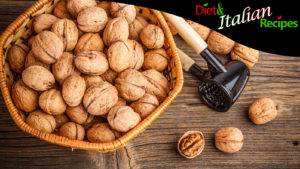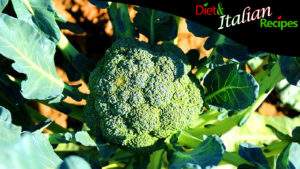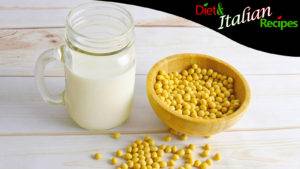Coffee contains caffeine, an energizing and stimulating substance responsible for the beneficial properties and, in some cases, the side effects related to the most beloved beverage in Italy. A cup of coffee is the perfect excuse for Italians to socialize, yet we know so little about this drink that comes from far away. How much coffee do you drink in a day? The caffeine contained in a cup of coffee is completely harmless, but what happens to our body if we drink too much coffee? Let’s delve into the effects of caffeine for adults and children, so we can also see how much coffee to drink a day to feel good and maybe even lose weight, and discover the calories and nutritional values of this beverage.

Coffee is a stimulating beverage, essentially the product of the infusion of the seeds of the plant of the same name that are roasted and ground into powder. The most prized species is the Coffea arabica variety, from which most of the drinks we bring to the table are obtained.
We can consume coffee in infinite ways: long, espresso, cold, bitter, with milk, spiked, Turkish-style, short, and decaf. While tastes may differ, we all agree that moderate doses of coffee make us more alert and in a better mood. That’s why in Italy, it’s the first thing we look for in the morning and the first thing we offer to friends, guests, or anyone we’ve just met.
Beneficial properties of coffee
Coffee has antioxidant and anti-inflammatory properties; in some cases, for example, milder ones, it can be helpful against headaches. It stimulates the nervous system with immediate tonic and stimulating effects that reflect an improvement in mental functions, making it easier to remember and think about things.
From some studies that attempted to identify the correlations between diseases and triggering or protective factors, it emerged that coffee is correlated with a lower incidence of:
- prostate or liver cancer,
- diabetes mellitus,
- liver cirrhosis,
- depression,
- Parkinson’s disease,
- general reduction of mortality.
According to this study, it seems that those who drink moderate amounts of this beverage (up to 4 cups a day) live longer. Unfortunately, these are so-called “population” studies, which cannot prove what has just been said but can only formulate hypotheses; suppositions that then need to be verified with more in-depth studies capable of ascertaining the causal link between coffee and benefits.
Nutritional values of Coffee
The nutritional values reported below refer to 100 g of ground coffee (Arabica and Robusta blend), but consider that about 6 g of powder are used to make a cup of coffee. 100 g of coffee provide 287 calories and contain:
- 4 g of water
- 10 g of protein
- 15 g of lipids
- 28 g of carbohydrates
- 2020 mg of potassium
- 160 mg of phosphorus
- 130 mg of calcium
- 74 mg of sodium
- 10 mg of vitamin B3 or Niacin
- 4 mg of iron
- 0.2 mg of vitamin B2 or Riboflavin
How much caffeine is in coffee and chocolate (a food rich in caffeine)?
| Beverage or food | Amount of caffeine |
|---|---|
| 60 ml of an espresso cup | 80 mg |
| 200 ml of an American coffee cup | 90 mg |
| 220 ml of a tea cup | 50 mg |
| 355 ml of a regular can of Coca-Cola | 40 mg |
| 250 ml of a regular can of energy drink | 80 mg |
| 50 g of a dark chocolate bar | 25 mg |
| 50 g of a milk chocolate bar | 10 mg |
Coffee Calories: How many calories are in a cup of coffee?
Coffee contains caffeine, which helps with weight loss thanks to its well-known “appetite suppressant” effect. However, some people wonder how many calories are in a cup of coffee to pay attention to their diet. Let’s consider the different options based on the type of coffee you like to drink:
- Black coffee contains just 2 calories per cup, so it is irrelevant if you consume it moderately (which is also enough if you want to help with weight loss).
- Coffee lovers who prefer milk in their coffee should know that their cup of coffee with a splash of milk contains around 10 calories. Again, the total calorie intake is negligible in a day. It is worth noting that scientists have found that when milk is added to coffee, “antioxidant activity decreases by more than half.” This does not happen when soy milk is used to make latte.
- A coffee with a teaspoon of sugar adds 20 calories. It is the sugar that increases the calorie intake. Therefore, those who want to diet and benefit from the appetite suppressant effect should limit themselves to drinking black coffee.
Benefits of coffee and caffeine side effects: What happens when we drink coffee?
When we drink coffee, we should generally feel more awake and alert. This is the main reason why millions, or perhaps billions, of people around the world drink a cup of coffee in the morning. What are the real effects of caffeine on our body? Science tells us that it has identified both positive and negative effects, and to achieve either, it is essential to quantify the dose of coffee (and thus caffeine) consumed daily.
“Moderate coffee consumption” is defined as when the caffeine ingested per day does not exceed 4 mg per kg of your weight. For example, a person weighing 70 kg does not consume more than 280 mg of caffeine daily, or drink more than 3 cups of coffee a day.
Those who do not drink coffee often or consume it in moderate doses will notice the following effects:
- Improved digestion, as gastric, salivary, and biliary secretion is stimulated.
- If consumed in small doses, it can slow down the heart rate and cause coronary and bronchial dilation. It can also improve the condition of allergic or asthmatic subjects.
- Psychomotor activity and mood improve, as well as athletic performance.
- It provides resistance to fatigue and reduces the need for sleep.
- It can help with weight loss because it slightly increases body temperature and acts as a fat burner, with an appetite suppressant effect.
“Excessive coffee consumption” is defined as when the caffeine ingested daily is greater than or equal to 10 mg per kg of your weight. For example, a person weighing 70 kg does not consume more than 700 mg of caffeine daily or drink at least 10 cups of coffee daily.
Those who make careless and excessive use of coffee, which can certainly be defined as excessive and beyond any limit, will experience the following negative effects:
- Causes stomach acidity, gastroesophageal reflux, and esophagitis, especially if consumed on an empty stomach.
- Triggers episodes of tachycardia, arrhythmia, and leads to hypertension.
- Causes anxiety, leading to depressive states, tremors, insomnia, and excitability.
- Reduces calcium and iron absorption due to its diuretic properties. Due to the scarcity of these two essential minerals, osteoporosis and anemia may occur.
Given the negative effects of caffeine on the human body, it is important to know the ideal way to prepare coffee so that it has less caffeine. Instant coffee contains less caffeine than espresso, and both (espresso and instant coffee) contain less caffeine than traditional moka coffee. However, unfiltered or Neapolitan coffee beats them all.
How much coffee should you drink per day?
The consumption of coffee can have both positive and negative effects on our health. It is a beloved stimulant beverage, especially among Italians, but one should never drink too much of it to avoid experiencing the side effects of coffee. The safe daily dose of caffeine is 300 mg, equivalent to about three cups of Italian coffee, so never drink more than three cups per day.
However, caffeine is also found in other stimulating beverages and foods, and the limit of 300 mg of daily caffeine can be reached by consuming 3 cups of Italian coffee, or:
- 6 cups of tea;
- 10 cans of Coca Cola;
- 8 cups of hot chocolate;
- 400 grams of extra-dark chocolate.
Some painkillers, fat burners, and anorectic drugs also contain caffeine, which adds to the caffeine found in our daily coffee.
Children have an even lower caffeine limit and should not consume more than 100 mg per day. That is why it is not recommended to give children too much Coca Cola or chocolate. The limit of 100 mg of caffeine in children is quickly exceeded with a couple of glasses of Coca Cola and two chocolate bars.
Those who drink coffee every day because they believe they can’t do without it will certainly have developed a certain tolerance to coffee. This explains why those who never drink it and then have two cups in one day experience insomnia, headaches, anxiety, hot flashes, and irritability.
Who should not drink coffee for health reasons?
If you were shocked to discover how much harm a few extra cups of coffee can do to you, hold on tight because there’s more. Negative effects due to obsessive coffee consumption are significantly worsened when combined with other stimulants (psychoactive drugs, alcohol, tobacco). So if you smoke and drink coffee, you’re subscribing to a recipe for disaster, as well as if you are a drinker of alcohol or an avid consumer of psychoactive drugs.
In any case, there are particular conditions in which traditional coffee should absolutely be replaced with an equivalent decaffeinated (equally good) or drastically reduced. Do not drink coffee or talk to your doctor first if you have:
- ulcers;
- poor digestion;
- gastritis;
- acid reflux;
- high cholesterol;
- cardiac patients;
- hypertensive subjects;
- individuals who abuse alcohol, smoke, or psychoactive drugs;
- pregnancy;
- fibrocystic mastopathy.
Pregnant women should not exceed 2 cups of coffee per day.
The lethal dose of caffeine for humans is 100 grams: it is impossible for a person to consume that much coffee immediately, but over time, the negative effects mentioned above inevitably appear in those who have been consistently drinking coffee throughout their lives.
For your own well-being, try to savor this delicious stimulating beverage only when necessary and when you can afford it, avoiding consuming it every day and potentially not exceeding 2 or 3 cups of coffee per day.
SHARE Coffee and caffeine, let’s discover the drink most loved by Italians.
The information provided in the Diet and Italian Recipes articles is for INFORMATION ONLY and does not intend to replace the opinion of professional figures such as a doctor, nutritionist, or dietitian, whose intervention is necessary for the prescription and composition of personalized dietary therapies.











